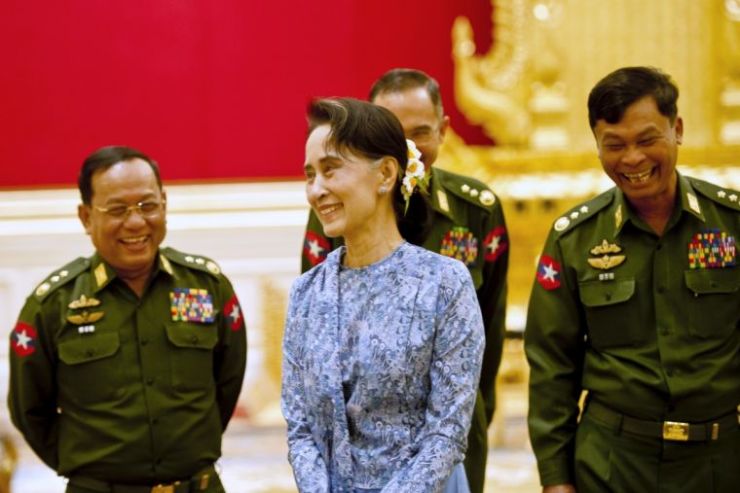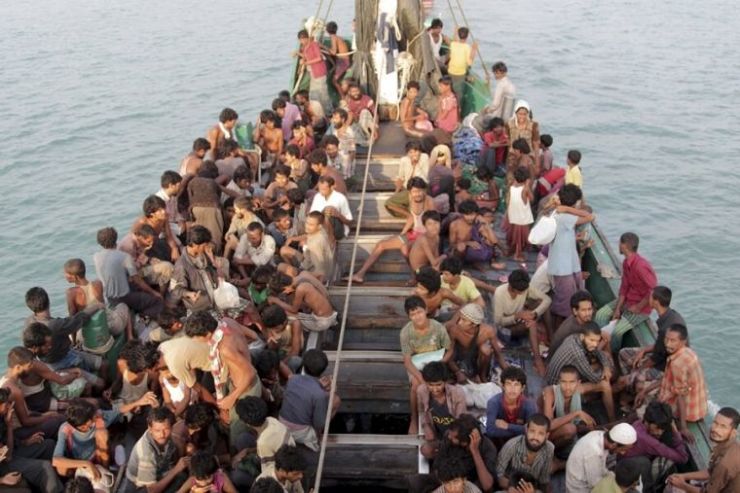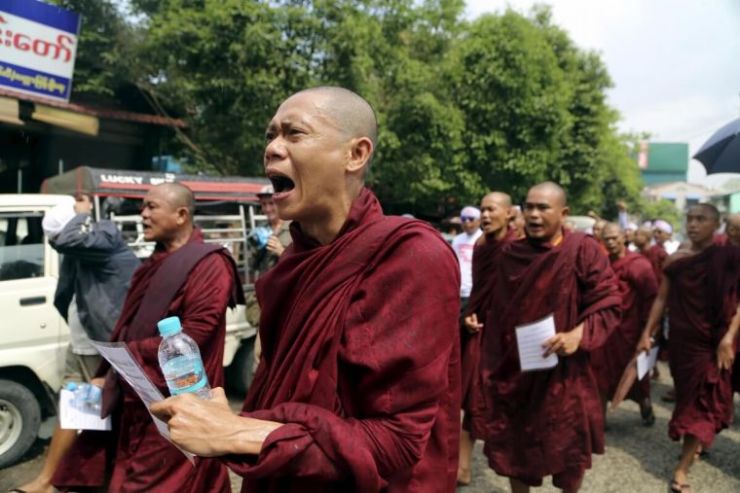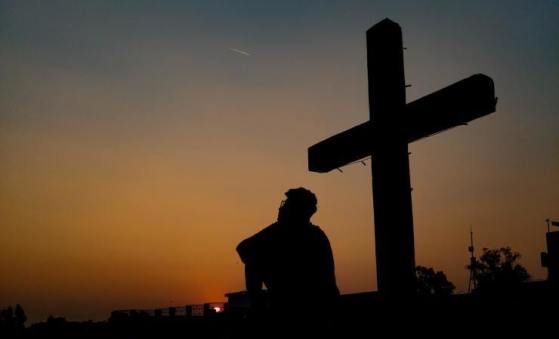
Myanmar's Aung San Suu Kyi has campaigned for freedom and democracy in her country for decades, and paid the price. She spent 15 years under house arrest, accepting separation from her husband and children as the price of her commitment to her country. Her moral standing has been unimpeachable and her party's victory in the election last year that saw the end of military rule was been hailed around the world.
She is constitionally barred from serving as president of Myanmar – also known as Burma – because of her marriage to a foreigner, Michael Aris (now deceased). But today, a bill allowing her appointment as a state counsellor with a role similar to that of a prime minister passed Myanmar's upper house. It is certain to become law.
For the first time, Aung San Suu Kyi will have real power. However, along with the obvious problems her country faces – poverty, education, energy, health, the rebuilding of civil society after years of repression – is one that offers few returns in terms of votes, but has the potential to tarnish even a legacy such as hers.

Religious nationalism in Myanmar is a powerful force. The Patriotic Association of Myanmar, abbreviated to Ma Ba Tha, has offices across the country. It's run by extremist Buddhist monks convinced Islam poses a deadly threat to Myanmar's identity. It's opposed to Aung San Suu Kyi's National League for Democracy, seeing it as soft on Muslims and too open to Western influence. It supports laws severely restricting religious freedom.
One of its most outspoken advocates, Ashin Wirathu, has called Muslims 'mad dogs'. Ma Ba Tha's precursor, the '969' movement, was implicated in violence in Rakhine state in 2012 that left more than 200 dead and a quarter of a million displaced. Many of them were Rohingya Muslims.
The Rohingya – to whom Myanmar denies citizenship, saying they migrated to the country from Bengal (though the Rohingya claim they are indigenous to Myanmar) – have borne the brunt of Buddhist nationalism. They face discrimination at every level. Many live in ghettos and refugee camps. Their land has been expropriated and given to Buddhist settlers. Violence, poverty and insecurity have driven many to take to boats in an effort to reach safety, as they believe, in Thailand; many have been left to drown.
But Buddhist nationalists have attacked Christian communities too. Myanmar ranks 23rd on Open Doors' World Watch list for Christian persecution. Many Christians belong to ethnic minority groups – including Rohingyas – who are targeted by nationalists.

One sign of the power of the military-nationalist ideology is a law passed last August restricting religious conversion and interfaith marriages. Among other provisions, the law law will create local Religious Conversion Scrutinisation and Registration Boards. Anyone wishing to change their religion will have to be over 18 and will be required to file an application with a local board, including the reasons for the conversion.
The law was greeted with alarm by rights organisations, including Open Doors, which expressed hopes that a new government would repeal it, and Human Rights Watch, whose deputy Asia director Phil Robertson said: "Allowing local officials to regulate private faith so closely is a pathway to repression of religious freedom. In their zeal to protect Buddhism, the authors of these laws are imperiling other religious minorities, including Christians, Hindus, and especially Burma's persecuted Muslim minority."
But now that Aung San Suu Kyi is effectively in charge, surely things will improve?
Perhaps. However, there are worrying signs that religious liberty and the plight of minorities are not at the top of her agenda – and that she may even be personally resistant to change.
Suu Kyi was interviewed in 2013 by BBC journalist Mishal Husain and was challenged about anti-Islamic attitudes in Burma. When Husain pressed her, she said: "I would like to make the point that there are many moderate Muslims in Burma who have been well integrated into our society, but these problems arose last year and I think this is due to fear on both sides.
"This is what the world needs to understand; that the fear is not just to the side of the Muslims but on the side of the Buddhists as well."
According to a book by Peter Popham, The Lady And The Generals: Aung San Suu Kyi And Burma's Struggle For Freedom, she was incensed by the questioning and was heard to mutter off-air, "No one told me I was going to be interviewed by a Muslim."
Suu Kyi has never made a clear statement opposing the persecution of Rohingyas and other minorities and she has refused to endorse the judgment of Human Rights Watch about Buddhist nationalist responsibility for violence and discrimination. She has been widely attacked for her apparent acquiescence in wrongdoing.
However, reflecting on the incident, Popham wrote that her background was tolerant and liberal. He suggests her domestic enemies have always attacked her for being too close to the West and not 'Burmese' enough and that she became "hyper-sensitive" to the charge. By depicting her as foreign, her enemies "tried to lump her together with the Muslim minority who are also regarded by many Burmese Buddhists as aliens with no right to remain in the country", he says. "My hunch is that Suu Kyi feared that if she spoke up for the Rohingya, it would make it easy for her enemies to repeat this argument – and if the Burmese masses fell for it, that could erode her standing and her chances of coming to power."
Now, Popham thinks, it might be different.
But though Suu Kyi has come to power with an enormous amount of moral and political capital, it is fatally easy for politicians to lose such advantages by a few missteps. She may feel that keeping the powerful nationalists on side is more important than fighting for an unpopular cause, no matter how righteous it might be.
In that case, she might like to consider the example of America's President Lyndon Johnson. When he took office after the assassination of JF Kennedy, one of his advisers tried to persuade him not to waste his time on the lost cause of civil rights.
He replied: "Well, what the hell's the presidency for?"




